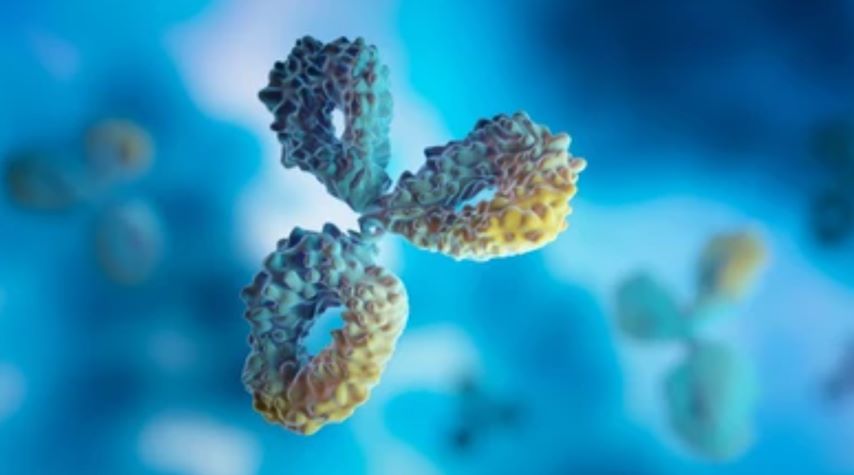Exosome Antibodies
The study of exosomes has emerged as a promising frontier in life science research, offering insights into intercellular communication, disease pathology, and biomarker discovery. Exosome antibodies play a pivotal role in enabling the isolation, characterization, and functional analysis of exosomes, changing our understanding of these extracellular vesicles.

Antibodies for Exosome Surface Markers
Exosome-specific surface markers, such as CD9, CD63, and CD81, serve as critical identifiers for the isolation and characterization of exosomes. A range of high-quality antibodies targeting these surface markers enables precise and efficient detection of exosomes. These antibodies have been instrumental in various analytical techniques, including flow cytometry, immunocytochemistry, and immunoblotting, providing researchers with the means to accurately identify and purify exosomes from complex biological samples.
For instance, in flow cytometry, exosome antibodies facilitate the efficient labeling and subsequent analysis of exosomes based on their surface marker expression. Similarly, in immunocytochemistry and immunoblotting, these antibodies permit the visualization and quantification of exosomes with high specificity, allowing for detailed investigations into their functions and molecular composition.
| Cat. No. | Product Name |
| CEA-008L | ExoQuali™ Anti-ALIX PolyclonalAntibody |
| CEA-001L | ExoQuali™ Anti-CD9 Antibody |
| CEA-005L | ExoQuali™ Anti-CD63 Antibody |
| CEA-006L | ExoQuali™ Anti-CD81 Antibody |
Antibodies for Exosome-Associated Disease Markers
The utilization of exosome antibodies has significantly advanced biomarker discovery efforts across diverse disease contexts. By leveraging exosome antibodies, researchers have successfully identified and validated exosome-associated biomarkers for conditions such as cancer, neurodegenerative disorders, and infectious diseases. These discoveries hold immense clinical potential, with implications for early diagnosis, prognostic assessment, and therapeutic monitoring.
Specifically, the utilization of exosome antibodies in biomarker discovery allows for the precise isolation and characterization of exosome populations carrying disease-specific biomolecules, such as proteins, nucleic acids, and lipids. By leveraging highly specific exosome antibodies, researchers can differentiate disease-specific exosomes from healthy exosomes, facilitating the identification of unique biomarkers associated with pathogenic processes.
Moreover, the application of exosome antibodies in biomarker discovery extends to the validation of candidate biomarkers for diseases such as cancer, neurodegenerative disorders, and infectious diseases. Through the use of these meticulously validated antibodies, researchers can confirm the presence of specific biomolecules within exosomes, laying the groundwork for the development of novel diagnostic assays and the assessment of biomarker signatures associated with disease progression and treatment response.
| Cat. No. | Product Name |
| CEA-007L | ExoQuali™ Anti-HSP70 Antibody |
| CEA-011L | ExoQuali™ Anti-TSG101 Antibody |
| CEA-012L | ExoQuali™ Anti-FLOT-1 Antibody |
| CEA-013L | ExoQuali™ Anti-Caveolin-1 Antibody |
| CEA-014L | ExoQuali™ Anti-CETP Antibody |
| CEA-015L | ExoQuali™ Anti-CXCR4 Antibody |
| CEA-016L | ExoQuali™ Anti-EpCam Antibody |
| CEA-017L | ExoQuali™ Anti-Flotillin Antibody |
| CEA-018L | ExoQuali™ Anti-Rab5 Antibody |
| CEA-019L | ExoQuali™ Anti-TM9SF4 Antibody |
| CEA-020L | ExoQuali™ Anti-Vimentin Antibody |
Technological Advances in Exosome Antibody-Based Assays
The field of exosome research has witnessed remarkable technological advances in antibody-based assays, enabling high-throughput and sensitive analysis of exosome populations. Cutting-edge exosome antibody-based assays, such as flow cytometry, immunofluorescence, and immunomagnetic bead isolation, provide unprecedented capabilities for studying exosome subpopulations, cargo molecules, and functional interactions.
- One notable technological advance is the integration of flow cytometry with exosome antibodies. This approach enables the simultaneous analysis of multiple exosome surface markers, facilitating the characterization of heterogeneous exosome populations with high precision. By leveraging exosome antibodies in conjunction with flow cytometry, researchers can elucidate the phenotypic diversity and functional attributes of exosomes in various biological contexts.
- Immunofluorescence-based assays, empowered by exosome antibodies, offer exceptional visualization and spatial mapping of exosomes within complex biological samples. This technology allows researchers to probe the subcellular localization and intercellular transfer of exosomes, shedding light on the intricate mechanisms underlying exosome-mediated communication and signaling pathways.
- Furthermore, the use of immunomagnetic bead isolation coupled with exosome antibodies has streamlined the purification and enrichment of exosome subpopulations from heterogeneous samples. This technology enables the targeted isolation of specific exosome subsets based on surface marker profiles, facilitating in-depth phenotypic and molecular characterization of distinct exosome cohorts.
Creative Bioarray Relevant Recommendations
Creative Bioarray offers a list of monoclonal/polyclonal antibodies against the common and disease-specific exosomal proteins. These antibodies are suitable for common applications including WB, ELISA, FC, IHC, ICC, IF, IP, etc. We are developing more exosomal antibodies continuously in every way to meet our customers' needs.